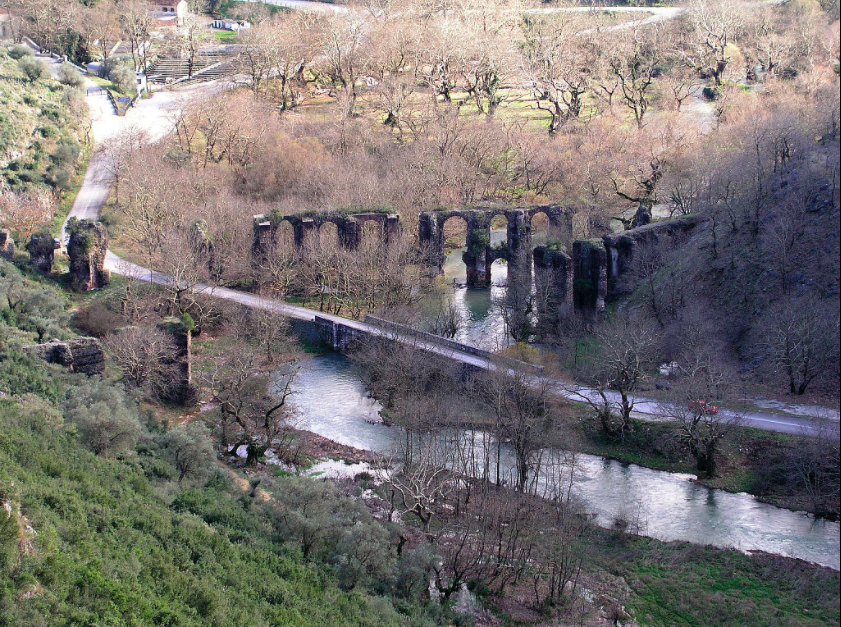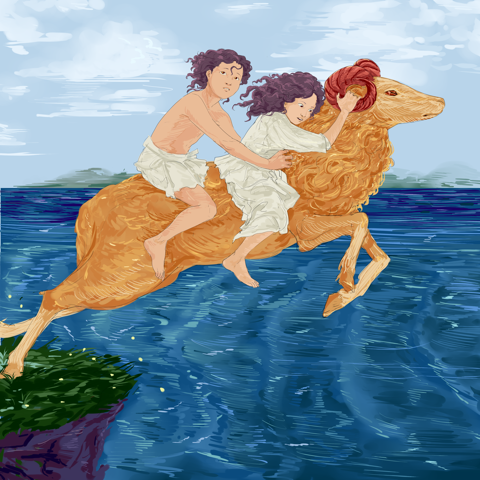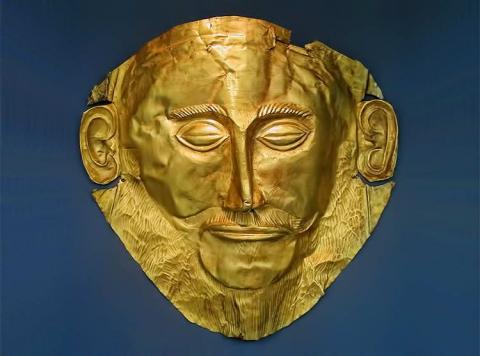Nina Papathanasopoulou
March 26, 2021
The Classics Everywhere initiative, launched by the SCS in 2019, in March 2021 has been renamed and reimagined as the Ancient Worlds, Modern Communities initiative. Ancient Worlds, Modern Communities supports projects that seek to engage broader publics—individuals, groups, and communities—in critical discussion of and creative expression related to the ancient Mediterranean, the global reception of Greek and Roman culture, and the history of teaching and scholarship in the field of classical studies. As part of this initiative, the SCS has funded 98 projects ranging from school programming to reading groups, prison programs, public talks and conferences, digital projects, and collaborations with artists in theater, opera, music, dance, and the visual arts. Awardees are selected by the SCS Committee on Classics in the Community. Most of the projects funded take place in the US and Canada, though the initiative welcomes applications from all countries and has also funded projects in the UK, Italy, Greece, Belgium, Ghana, Puerto Rico, and most recently, India.
With so many people at home, the podcast industry has been growing rapidly. About 100 million people listened to a podcast during each month of 2020, and of the even greater numbers projected for 2021, some will be tuned in to six new podcasts supported by the SCS’ Ancient Worlds, Modern Communities initiative. These podcasts engage communities today with the study of the ancient world in a creative and critical way and are producing long-lasting digital resources as a benefit both to the general public and to those working on the ancient Mediterranean. Three are discussed below, on Greek archaeology, Greek mythology, and classical reception; the other three in past and future posts.
Trapped at home and pondering ways to share perspectives on antiquity with new audiences, Chelsea Gardner, Assistant Professor of Ancient History at Acadia University, joined five female colleagues from Canada, all of whom had once studied together at the University of British Columbia: Carolyn Laferrière, Postdoctoral Scholar with the Center for the Premodern World at the University of Southern California; Christine Johnston, Assistant Professor of Ancient Mediterranean History at Western Washington University; Megan Daniels, Assistant Professor of Ancient Greek Material Culture at the University of British Columbia; Melissa Funke, Assistant Professor of Classics at the University of Winnipeg; and Sabrina Higgins, Assistant Professor cross-appointed between the Departments of Humanities and Archaeology at Simon Fraser University. Together, the six colleagues created Peopling the Past (PtP), a digital humanities project consisting of a podcast, video series, and blog.
The project, which received the SCS Women's Classical Caucus Public Scholarship Award and an Honorable Mention during the Canadian Social Knowledge Institute Emerging Open Scholarship Awards, highlights new scholarship from underrepresented scholars on the everyday, lived experiences of ancient peoples. It aims to underline the important work of individuals – both ancient and contemporary – whose work has been overshadowed by history’s most dominant narratives and to highlight the diversity of voices in academic scholarship. In doing so, PtP is challenging “the narrow stereotypes of who gets to tell history, as well as whose histories we choose to tell” and is producing open-access materials that are relatable to a wider and more diverse audience.
The podcast’s first season explores topics in Greek archaeology and focuses on approaches to reconstructing parts of the ancient world that do not survive: the sounds, smells and sensory experiences of the ancients, as well as their relationships to fellow humans, gods, and animals. Among other topics, episodes discuss the production of textiles, the clothing people would wear during religious processions, the role of sounds and music in ritual, the smells produced while creating pottery, the idea of a seascape, methods for navigating and sailing along the coast, and the surprising importance of fountains as assertions of power. The podcast’s second season, scheduled to be released in early summer, will focus on Roman Archaeology. Topics will include shoes in Roman Britain, the use and reuse of burials and cemetery spaces, access to sanitation and sewage systems, curses, grave monuments, and the institution of slavery.
Gardner reports that working on the podcast has been immensely satisfying: she has gained new knowledge, met new scholars, and produced material that’s educational and accessible for anyone interested in the field:
Hearing new and exciting research from innovative and creative scholars and professionals has been the most rewarding part of the project for me. The constant exposure to new ways of thinking about and analyzing material culture keeps me engaged with the fields of Classics and Mediterranean archaeology in a way that I've never experienced before, because I'm reading and hearing about ground-breaking work being done outside of my immediate area of expertise. This has made me a better teacher and allowed me to incorporate different perspectives and voices into my classroom.
One of Gardner’s students, engineering major Hannah Longmire ‘22, commented on the effectiveness of the podcast medium as an educational resource. After listening to the PtP episode ‘Life Aquatic’ with guest speaker Dylan Rogers, Longmire reported:
I definitely enjoyed listening to the discussions rather than read[ing] a very formally worded paper or text, because it allowed me to feel more engaged with what was being discussed. I also like how you related the idea of power with water. I never really think about water as holding power only because in our everyday lives it is so accessible. However, I can see how during the ancient times having the ability to control water was a very important skill.

Figure 1. The Roman aqueduct in the Greek village of Agios Georgios discussed in PtP episode on Life Aquatic and built to supply water to the ancient city of Nikopolis near Preveza in Northwestern Greece.
The PtP video series complements the podcast. It consists of short, 10-15-minute videos discussing lesser-known topics in an educational way: these include bronze age cook pots and what they can tell us about dining and food consumption; disability in the ancient Greek world; and coffins in ancient Egypt and the craftspeople behind them. The videos explore life in the Ancient Mediterranean more broadly: they focus not only on Greece and Rome, but also on Ancient Egypt, the Near East, and Bronze-Age Azerbaijan.
PtP also produces a blog featuring the multi-disciplinary, innovative work of graduate students, ranging from vase representations of Africans on Greek vases to analyses of sculptural reliefs from Parthia and Gandhara, regions in present-day Iran, Pakistan and Afghanistan.

Figure 2. Athenian plastic mug in the form of a black man’s head and face, ca. 510 BCE. Museum of Fine arts, Boston. Photo by Najee Olya who discusses his research on Greek painted vases representing Africans in the Peopling the Past blog.
Johnston, who has primarily worked with the video production, comments on the rich rewards of being involved in this programming:
It’s been really rewarding to hear from colleagues that the resources have helped with their class prep and alleviated some of the labour of online teaching. For myself, getting to produce and use content that really meets my pedagogical goals, and then see it resonate with my students, has been wonderful.
Another podcast supported by Ancient Worlds, Modern Communities is The Greek Myth Files: an exploration of Greek mythology by Scott Smith, Professor of Classics at the University of New Hampshire, and his team of undergraduate students. The Greek Myth Files was born out of Smith’s passion for the material and his interest in engaging his undergraduate students creatively in research and public outreach. Ideas about creating the podcast were in the works before COVID-19 hit, but the podcast drew inspiration from the pandemic and was first launched last summer. The first season (episodes 1—4) shows how Greek mythology can help us think about and deal with the COVID-19 pandemic. Episode Two, ‘Death, Dying, and Healing in Greek Myth and Religion,’ offers a particularly illuminating discussion of ancient views about whether the old should sacrifice themselves for the young, and compares ancient attempts to weight the value of human life with today’s strategies for identifying and protecting those most vulnerable during the pandemic. The second season (episodes 5-10) discusses what Greek myth is and is not, and features interviews with international scholars including Greta Hawes, Lecturer in Classics and Ancient History at the Australian National University at Australian National University, and Ken Dowden, Emeritus Professor of Classics at Birmingham University. The podcast’s third and current season (episodes 11-14) focuses on groups of myths, such as Jason and the Argonauts and myths located in or around the Black Sea.
The Greek Myth Files draws on the talents of a wide range of contributors. Theater and dance students have been involved as voice actors, performing the podcast’s dramatic readings; an English journalism major is the podcast’s main sound engineer; and an art student has recently begun to contribute original artwork, inspired by the script of the podcast’s third season. This artwork, along with maps, genealogical charts, and other materials, is published on the podcast’s webpage, with the aim of drawing listeners further into the fascinating realm of Greek myth. Students have also been helping with research and writing the podcast’s script, and it is Smith’s goal to include them even more in the writing process next season.
Art student Allina Podgurski ‘22, whose work along with that of the voice actors has been compensated by the SCS funding, comments on her experience working on the podcast:
I am immensely grateful for the opportunity to provide art for the podcast, as the process of creating sketches and framings for the subject allows for time to consider and conceptualize the myths being discussed in the episode.

Figure 3. Phrixus and Helle on the golden ram. Original artwork created by University of New Hampshire student, Allina Podgurski ’22. Artwork used with the artist’s permission.
Ancient Worlds, Modern Communities also supported the launch of Classically Trained, a podcast dedicated to discussing the accuracy and effectiveness of modern media representations of classical myth, history, and archaeology, particularly through a queer, feminist, and postcolonial lens. The podcast is hosted by classicist Julia Perroni and archaeologist Allison Marlyn, both graduates of the University of British Columbia who are interested in exploring issues of gender, queerness, and race in antiquity and today. The podcast’s first four episodes discuss the Netflix series Troy: Fall of a City, while the fifth episode discusses Percy Jackson’s The Lightning Thief. Subsequent episodes will discuss more Percy Jackson books, novels based on or set in antiquity, the film Gladiator, and the music of the folk band the Mountain Goats, among others. In future episodes, Perroni and Marlyn plan to discuss materials with guest scholars specializing in religion, Ancient Egypt, and the Near East.
The Ancient Worlds, Modern Communities initiative supports outreach efforts and public-facing work that engages communities worldwide with the study of the Ancient Mediterranean in critical, analytical, and creative ways. As announced on the SCS website, the committee is particularly interested in projects that focus on long traditions of engagement with Ancient Mediterranean culture that have been excluded from classics curricula; projects proposed by rather than for historically underrepresented minoritized communities; interdisciplinary collaborations; artistic projects and creative adaptations; projects involving global reception and comparative approaches; and projects that are critical of classics as it has been practiced and structured as a discipline. The SCS is also looking forward to being able to support live performances, artistic creations, and in-person events as vaccinations allow for a return to some kind of normalcy in the weeks to come.
The next round of applications for Ancient Worlds, Modern Communities grants is due May 14, 2021, and you can apply here.
Header image: Gold death-mask, known as the ‘mask of Agamemnon’. Mycenae, Grave Circle A, Grave V, 16th cent. BC. National Archaeological Museum of Athens.
Authors


